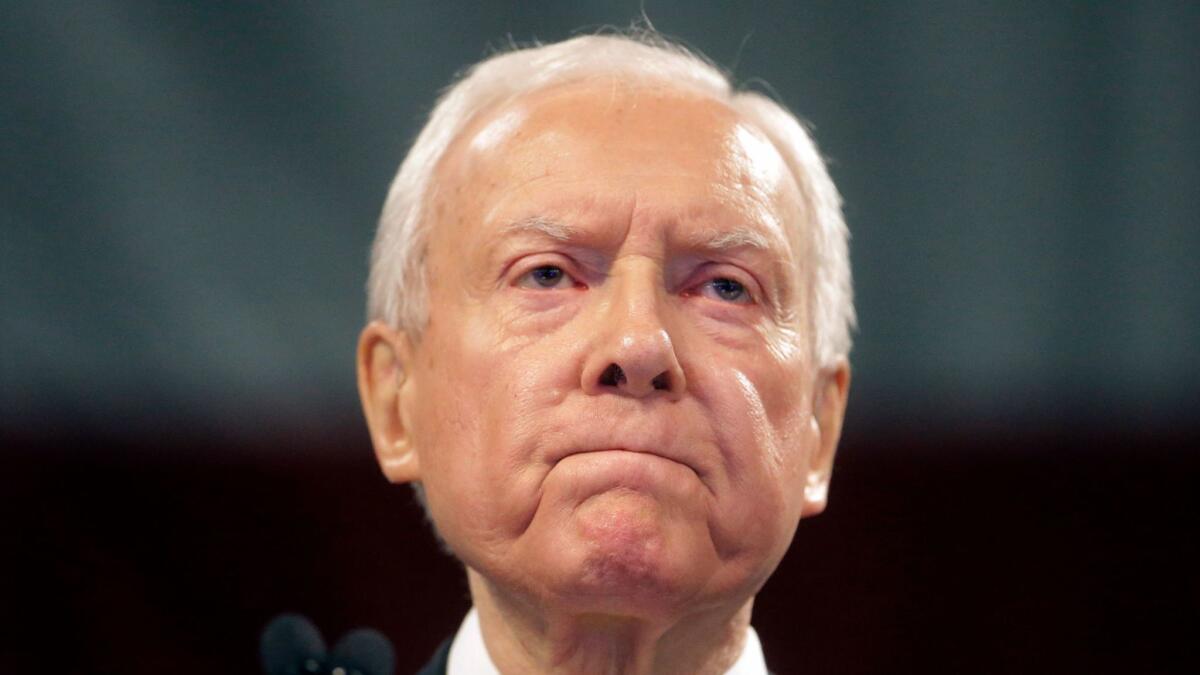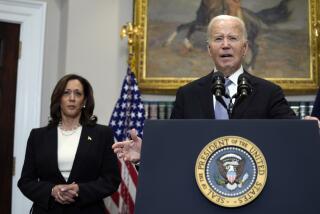Column: 11 days and counting: Why hasn’t Congress renewed health insurance program for 9 million children?

We know that Congress is just unimaginably busy right now, so perhaps it’s understandable that 11 days after funding for a crucial children’s healthcare program expired, the lawmakers still haven’t gotten around to restoring it.
We’re talking about the Children’s Health Insurance Program, a state-federal program serving 9 million children and their mothers. We reported earlier, as the Sept. 30 deadline for federal reauthorization of CHIP was closing in, that delay was placing state programs in dire jeopardy.
There’s still no schedule for a vote on CHIP in either chamber on Capitol Hill.
What has Congress and the Trump administration been tied up with, while CHIP renewal has languished?
Let’s see. There was the tax cut proposal, mooted on Sept. 27, and discussed endlessly since, even though the drafters didn’t bother to fill in a multitude of blanks covering who gets the tax cuts and who gets hammered. (Spoiler alert: The rich get almost all the tax breaks, and everyone else gets shortchanged.) That has sucked up a lot of congressional mind share.
Over at the White House, President Trump has been fuming over the collapse of the Senate’s Obamacare repeal bill and about the National Football League players’ taking a knee during the national anthem. That who-cares issue prompted Vice President Mike Pence to take time out of his busy weekend to fly halfway across the country for a symbolic show of support for the flag, so he could fly halfway back across the country immediately for a California fundraiser. Pence’s theatrics cost taxpayers nearly $250,000.
Meanwhile, Trump spent his time picking fights with Sen. Bob Corker (R-Tenn.), the mayor of San Juan, Puerto Rico, and NBC. He also stopped in Puerto Rico, where he praised his performance in disaster relief without apparently noticing that half the island still is without power or water. The Washington press corps kept its eye on whether Secretary of State Rex Tillerson called Trump a “moron” and if so, what variety of moron.
CHIP was enacted in 1997 with bipartisan support, which it has continued to enjoy more or less since. So nothing should have interfered with its reauthorization. What did, as we reported, was the Senate’s preoccupation in the last week of September with one more fruitless attempt to repeal the Affordable Care Act. By the time that measure was dead and buried, there was no room left to enact a CHIP measure that already had been agreed on by Sens. Orrin Hatch (R-Utah), one of CHIP’s original sponsors, and Ron Wyden (D-Ore.).
The House was poised to vote on a CHIP reauthorization this week but put it off because Democrats complained about terms inserted by the GOP, which included taking money from a public health fund under the Affordable Care Act.
Congress may be sanguine about renewing CHIP because most states have enough in their budgets to continue the program until the end of the year or the first quarter of 2018. But some are on the brink. They include Utah — Hatch’s home — which warned legislators that it would have to start rolling up its program almost as soon as the deadline passed without a vote.
Minnesota Human Services Commissioner Emily Piper warned the state’s Washington delegation that its money would run out virtually on deadline day, and followed that up with a public warning that on Oct. 1, the state would have to start taking “extraordinary measures” to keep the program moving along, even if on one cylinder. Among other steps, she said, “pregnant women covered by the program [will] be cut off altogether, losing coverage for prenatal and postpartum care.”
Few other states can rest easy. The longer Congress dithers, the more uncertain every state program becomes. CHIP operates with long-term planning, and without assurances that the funding will appear eventually, services will be pared back, professional contracts canceled and enrollments slashed.
It should go without saying too that the longer Congress dithers, the greater the chances that some other priority will elbow CHIP out of the way, as the remaining legislative days dwindle. Between now and the end of the year, Congress will be taking three weeks off for holidays; the Senate also will take a knee on four of the remaining 12 Fridays and eight of the remaining Mondays. The House will be in session for only four more Fridays and four Mondays. Think of that the next time a federal politician tells people they need to work harder.
Somewhere in its busy schedule Congress surely can find the time for a routine reauthorization of health insurance for sick children and mothers. In video game terms, this is a move with the lowest difficulty level one can imagine. What does it say that Congress can’t get even that much done?
Keep up to date with Michael Hiltzik. Follow @hiltzikm on Twitter, see his Facebook page, or email michael.hiltzik@latimes.com.
Return to Michael Hiltzik’s blog.
More to Read
Get the L.A. Times Politics newsletter
Deeply reported insights into legislation, politics and policy from Sacramento, Washington and beyond. In your inbox three times per week.
You may occasionally receive promotional content from the Los Angeles Times.







